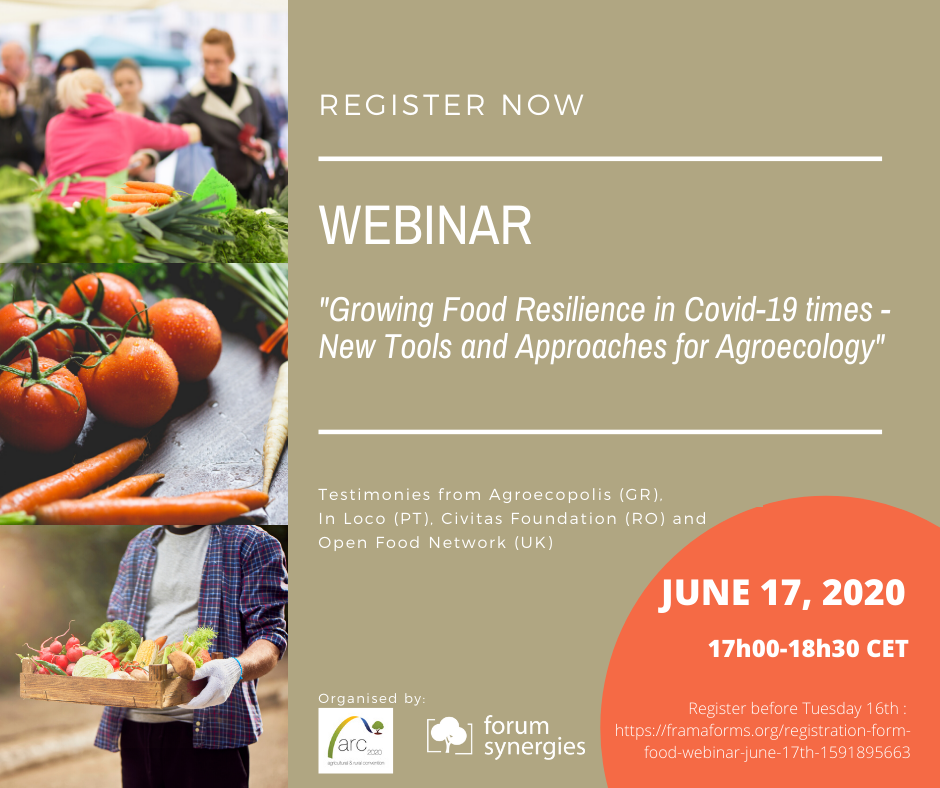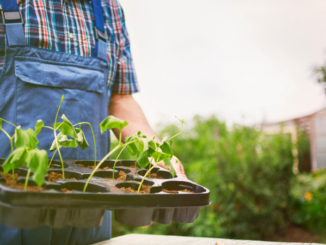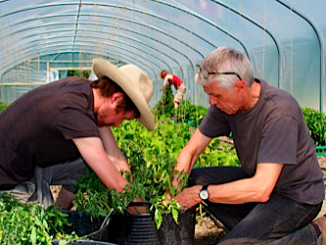At this Webinar we will learn about new tools and approaches agroecological communities have developed since Covid-19. In the face of an extra, massive challenge, communities all over Europe have stepped up and developed creative responses for distributing good food. This is happening at local, regional, territorial and national levels, while there is also an international solidarity dimension. A number of examples be presented and discussed by the practitioners themselves, while there will be a real focus on co-learning and next steps for deepening our collective food resilience.
Growing Food Resilience in Covid-19 times – New Tools and Approaches for Agroecology
Sign up for this Webinar
How have local, agroecological food initiatives stepped up in this moment of crises? The long now of Covid19 has added an extra layer of difficulty and stress onto an already challenging situation for proponents of a food sovereignty approach to living and eating. Nevertheless, inspiration has manifest too, with agroecological movements not only adjusting but in some cases expanding the reach and impact of their activities beyond the local and into the regional, territorial, national and even international.
We want to showcase these altered approaches so we can learn from each other and drive our movement forward. To do this, ARC2020 and Forum Synergies are co-organising a webinar with four other initiatives, from Portugal, Greece, Romania and the world.
Join us on 17th June at 17.00 Hrs CET for a participatory webinar with Agroecopolis (Greece), Civitas (Romania), In loco (Portgual) and the Open Food Network (UK, Australia, rest of the world).
Sign up for this Webinar (FARMAFORM LINK)
This event will help community groups, agri-food movements, policy makers, media workers, academics of rural and food system studies, consumer groups and more find out about coping mechanisms, innovative tools, best practices and exciting future opportunities, including collaborative ones.
Facilitated by Davie Philip of Cultivate (Ireland) and Ecolise (Europe-wide) this event will allow us to and learn from the best of what our movement does, deepen agroecological approaches to food and farming even in these times of great difficulties.
Who’s involved?
Portugal – In Loco
COVID-19 has transformed a food education project into a support platform for local production and consumption.
The social innovation project “O Prato Certo” is focused on the human right to adequate food, and on fighting food insecurity through a food education strategy based on the principles of the Mediterranean lifestyle: “Food must be tasty, healthy and economical”.
The “O Prato Certo” platform already had a georeferenced database of small producers, local markets and food baskets.
As soon as the pandemic scenario emerged, this tool has expanded throughout the country, in partnership with public and private entities and was adopted by a large number of producers and consumers , from the north to the south of the country. At the moment, 230 producers are registered, 113 food baskets (agricultural and fishery products) and 110 local markets.
Greece – Agroecopolis
Agroecopolis is a young, non-profit grassroots, non-governmental organization, and is the Hellenic Network for Agroecology, Food Sovereignty and Access To Land.
Agroecopolis has spearheaded a rapid-response mobilisation of producers, including via two organic growers associations, and food activists to respond to the Covid19. This began with a nationwide digital and social media campaign promoting local direct links between producers and consumers all over the country. The aim has been to reach out past the usual networks and into “coronavirus quarantinees”. Four groups were organised working on aspects of the campaign, including content creation, dissemination, liaising with producers and organising the final ‘match-making’.
Working from the principal of ‘not one more leaf rots unpicked in a field’, and bringing together elements of the Reko ring and CSA (Community Supported Agriculture), agroecological producers and consumers are connected up. Once established with volunteer support, members take over and self-organise. Teams of volunteers are working on the creation of content and the dissemination of the campaign so it generates responses from consumers all over Greece. The aim is to develop PGS (Participatory Guarantee Systems) and CSA (Community Supported Agriculture) networks that will further solidify the Food Sovereignty movement on a national level.
Romania – Civitas
Nod Verde is a Food-Hub, based in Cluj-Napoca, Romania, which brings together local farmers and creates a community of urban consumers, thus promoting the short food supply chain. The Food Hub was developed by Civitas Foundation for Civil Society – Cluj-Napoca Branch. Since 2018, Nod Verde has supported more than 130 producers and has promoted over 250 types of products.
Today, in the context of Covid 19, Nod Verde has grown its capacity in order to support the local farmers around Cluj to sell their products to many of us who got stuck at home due to the lockdown. Civitas made sure to deliver fresh food in the most secure conditions for our customers and we have seen how important is to have a community of people, all eager to receive fresh products, thus helping the local producers.
UK/World – Open Food Network
Open Food Network offers an open source (i.e. publicly-owned and non-proprietary) platform enabling new, ethical supply chains. Food producers can sell online directly to consumers, while wholesalers can manage buying groups and supply produce through networks of food hubs and shops. Communities can bring together producers to create a virtual farmers’ market, building a resilient local food economy.
At a time when supply chains are being disrupted around the world — resulting in both food waste and shortages — OFN is expanding, providing an option for producers whose farmers markets have been closed. Globally, the Open Food Network is currently deployed in India, Brazil, Italy, South Africa, Australia, the UK, the US, and five other countries, with the initiative being established in other countries such as Ireland.
Unlike other similar digital platforms, OFN is a not-for-profit initiative and a distributed collaborative organisation. There is great backend support for new people to the network, as well as ongoing support for all, including on interoperability. It is run by committed people, blending aspects of sociocracy and holacracy with governance elements developed over time in response to specific challenges and tensions in those models. More on how it operates here.
Sign up for this Webinar (FARMAFORM LINK)
Since the COVID outbreak we have seen an 850% increase in the turnover through OFN shopfronts across all European instances.
Small-scale producers, community food enterprises and resilient local economies all face threats from the COVID crisis situation. This has also been a time when there are massive opportunities to support and strengthen them as they are playing a vital role in ensuring food supplies in communities worldwide.
Since lockdown began, the local food networks we support have expanded dramatically. These networks are supporting many vulnerable families and individuals who found supermarket delivery slots are booked out for weeks. Many food producers who were supplying the hospitality sector had to rapidly restructure their supply chains to find new routes to market – in many cases this meant finding local markets with households who were very keen to buy from local producers.
Nick Weir of OFN
Facebook page is here
Sign up for the event here
More
Coping with Covid19 – the Open Food Network and the New Digital Order(s)
Coping with Covid19 – Commoning as a Pandemic Survival Strategy
Farm Resilience in the Face of the Unexpected: Lessons from the COVID-19 Pandemic
Letter From The Farm | The Resilience and Privilege of a Rural Homestead
Coping with Covid – Struggles and Resilience of Small-Scale Cheesemakers in Italy
IPES-Food on Covid-19: Protect the Vulnerable, Build Resilience, Stay Vigilant
Coping with Covid19 – Mutual Aid and Local Responses in a time of Coronavirus
What will the World be like after Coronavirus? Four Possible Futures





